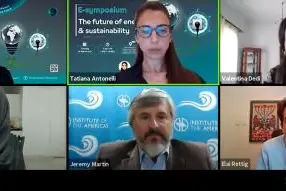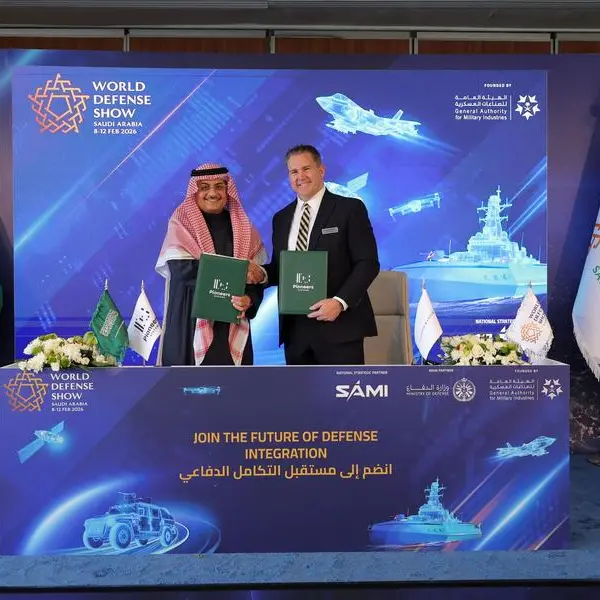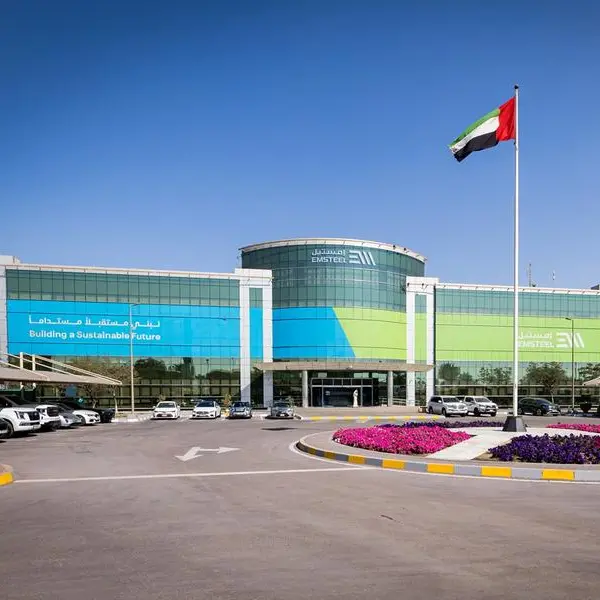PHOTO
ABU DHABI – The alternative concept of the circular economy, supporting technology to become commercially feasible, and the complexity surrounding energy transition were some of the talking points at the E-Symposium organized by TRENDS Research & Advisory on Tuesday (March 16).
Leading energy experts and researchers worldwide participated in the E-Symposium – The Future of Energy and Sustainability – discussing critical subjects such as energy transition, green technologies and sustainability, new technologies, and the future of fossil fuels. They also discussed the challenges and opportunities related to the future of non-traditional renewable energy.
The event was part of the ongoing series TRENDS Future Forum – The World in 2071. Delivering opening remarks on behalf of Dr. Mohammed Al-Ali, the TRENDS Research & Advisory CEO, TRENDS Researcher Alya Al-Jneibi said a record drop in global carbon footprint is noticed as flights are grounded and transportation channels interrupted.
“Data shows that the daily global CO2 emissions fell by around 20 percent in April 2020, compared to April 2019. The global health pandemic has come as a wake-up call for economists as well as environmentalists to enhance their search for answers and for decision-makers to act upon them,” she said.
Addressing the live-streamed event, Dr. Elai Rettig, Senior Researcher at the Maritime Policy & Strategy Research Center, University of Haifa, Israel, highlighted the security-based incentives for energy transition in Israel and the Gulf states. Dr. Rettig said that climate change mitigation and CO2 reduction is not always the main incentive for countries to transition into cleaner sources of electricity generation.
“In the cases of Israel and the Arab Gulf states, the push towards solar energy in the past decade is motivated mainly by immediate economic and security needs, rather than by long-term environmental concerns,” he said. According to Dr. Rettig, the non-environmental incentives shed light on the opportunities and obstacles for the future of the energy transition in the Middle East.
Dr. Amane Kobayashi, who represented Japan’s Institute of Energy Economics (IEEJ), shared a Japanese and Asian perspective on new technologies and the future of fossil fuels. He said that the nexus of the energy transition, energy security, and geopolitical competition in Asia and the Middle East is becoming critical for Japan more than ever.
“Many models estimate that demands for crude oil in greater Asia would double in 2050 compared to 2020 while only the Middle East could be the major and stable supplier. Yet, with the geopolitical uncertainty in the Middle East, energy security for Japan and Asia is becoming increasingly threatened, as they rely heavily on the oil and gas supply from the region,” Dr. Kobayashi said.
“Japan is accelerating cooperation with the oil and gas producing countries including the Middle East not only to import fossil fuels but also to lead future hydrogen society,” he said. He also highlighted the significance of transnational connectivity and said that since Japan is isolated geographically, it should develop its own grid.
“But when we look at Asia, Middle East, or Latin America, there is a lot of opportunity for the transnational grid and other energy networks. However, international politics prevents such a thing from happening,” said Dr. Kobayashi.
Sarah Al-Harthey, who is working as Business Development Manager for renewable energy projects in Saudi Arabia’s private sector, shared her perspective on MENA focusing on green technologies and fuels. She also highlighted the essential technological demands for the energy transition in the region. “With 12.6 percent growth, MENA is among the fastest-growing regions worldwide in terms of renewable energy. However, total capacity stands at 23 GW, which is only 1 percent of global production,” Al-Harthy said.
According to her, the MENA region needs to create a multi-shareholder taskforce to assess national and regional technological needs, ensure energy technologies’ regulatory deployment and incentivize decarbonization regimes. “The region also needs to prioritize international cooperation to position the region as a clean energy source and build partnerships with advanced countries in Asia for technology transfer,” she said.
Jeremy M. Martin, the Vice President of the Energy & Sustainability Program at the Institute of the Americas, said we are at a transformational juncture in history, and with Biden’s arrival, two-thirds of the world’s greenhouse gases will be in countries committed to net-zero emissions.
“Energy transition needs to be a just transition; there needs to an increased understanding of the interconnection of climate change and social justice, and this is particularly the case here in the US,” Martin said. Martin also said that despite Covid’s deep impact on the energy sector and economic development, renewables still form the largest area for new power generation. Their penetration rate has become faster than any other fuel in history. “Many estimates point to electricity becoming the most dominant fuel in the fuel mix by 2040,” he said.
Dr. Valentina Dedi, the Lead Economist at the KBR, United Kingdom, said historically, population growth has been behind rising energy consumption. The decoupling of natural resource use and environmental impact of the economic activity has been the essential elements in the transition to a sustainable future.
“Energy efficiency has a tremendous potential, but we have witnessed slower progress, and levels of investment targeting the industry have remained unchanged for the last few years,” Dedi said. According to her, circular economy embodies a fundamental shift in how products and materials are managed. “However, the world is still far from circular as the global economy is just 8.6 percent circular,” said Dedi.She said that, in 2020, a new Action Plan for the Circular Economy was announced as one of the main blocks of the European Green Deal, and at least 16 member-states have put forward a circular economy strategy since 2016.China has started increasing its focus on achieving a circular economy, with significant policy movements focusing on global plastic disposal and waste management. In January 2020, the UAE Cabinet approved the “UAE Circular Economy Policy” while Saudi Arabia has also announced a circular carbon economy scheme.The E-Symposium was live-streamed on TRENDS YouTube channel and its other social media platforms.
ABOUT US
TRENDS Research & Advisory strives to present an insightful and informed view of global issues and challenges from a strategic perspective. Established in 2014 as an independent research center, TRENDS conducts specialized studies in international relations and political, economic, and social sciences. It undertakes rigorous analyses of current issues and global and regional developments, especially in the Middle East and North Africa.
The Center analyses opportunities and challenges at various levels of the geopolitical spectrum. It evaluates scenarios and prospects to find scientific and objective answers and seeks to influence the decision-making process. TRENDS Research & Advisory aims to champion national and regional causes and build a strong network with research centers, organizations, and institutions worldwide. It also seeks to benefit from the expertise of international research and academic institutions.
© Press Release 2021
Disclaimer: The contents of this press release was provided from an external third party provider. This website is not responsible for, and does not control, such external content. This content is provided on an “as is” and “as available” basis and has not been edited in any way. Neither this website nor our affiliates guarantee the accuracy of or endorse the views or opinions expressed in this press release.
The press release is provided for informational purposes only. The content does not provide tax, legal or investment advice or opinion regarding the suitability, value or profitability of any particular security, portfolio or investment strategy. Neither this website nor our affiliates shall be liable for any errors or inaccuracies in the content, or for any actions taken by you in reliance thereon. You expressly agree that your use of the information within this article is at your sole risk.
To the fullest extent permitted by applicable law, this website, its parent company, its subsidiaries, its affiliates and the respective shareholders, directors, officers, employees, agents, advertisers, content providers and licensors will not be liable (jointly or severally) to you for any direct, indirect, consequential, special, incidental, punitive or exemplary damages, including without limitation, lost profits, lost savings and lost revenues, whether in negligence, tort, contract or any other theory of liability, even if the parties have been advised of the possibility or could have foreseen any such damages.




















